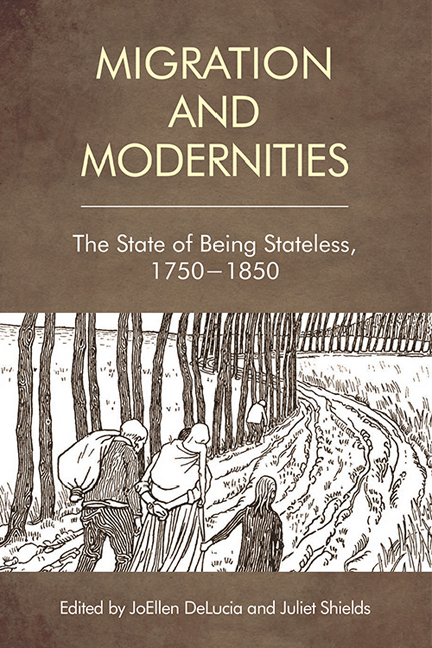6 - The Great Migration and Individual Travels: Precursors of Serbian Modernity?
Published online by Cambridge University Press: 05 May 2021
Summary
This chapter explores how the traveling of individuals and the migrations of groups affected changes in Serbian cultural identity from the end of the seventeenth until the beginning of the nineteenth century. The first part focuses on the consequences of the Great Migrations of the Serbs of 1690, while the second part centers on the travels of Dimitrije Dositej Obradović (c. 1740–1811), a great traveler, writer, and philosopher, whose reformative thinking not only affected the Serbs, but also influenced South Slavs, Greeks, and Romanians in the Balkans.
The migrations from the Balkan Peninsula (from the territories of the medieval Serbian empire) to the north (to the territory of South Hungary in the Habsburg monarchy) affected the integration into Serbian culture of broader Western European cultural tendencies. This process began as a consequence of political, social, and religious changes and had a significant influence on all aspects of life in the Balkans. At the beginning of the eighteenth century, after a long period of isolation under Ottoman occupation, Serbian literature and culture became, for the first time, strongly influenced by Western European literary and cultural developments. Important changes took place in Serbian society after the Great Migrations of Serbs in 1690 from territories once held by Serbs and now under the rule of the Ottoman empire toward the north. As a consequence of that territorial shift, there occurred cultural, political, economic, and religious shifts. Being stateless and divided among the powerful Ottoman and Habsburg empires produced changes of great importance for the whole Serbian population. Geographical, political, and religious issues altered cultural paradigms on two levels: the collective and the individual.
Obradović's autobiography was published in two parts. In the first part of The Life and Adventures of Dimitrije Obradović Who as a Monk Was Given the Name Dositej, Written and Published by Himself (Život i priključenija Dimitrija Obradovića, narečenoga u kaluđerstvu Dositeja, njim istim spisat i izdat, I 1783; II 1788, Leipzig), he describes running away from home as a boy to join an Orthodox monastery, becoming a monk and a saint. In the second part, he flees the monastery, bound for enlightened Europe.
- Type
- Chapter
- Information
- Migration and ModernitiesThe State of Being Stateless, 1750–1850, pp. 150 - 169Publisher: Edinburgh University PressPrint publication year: 2018

